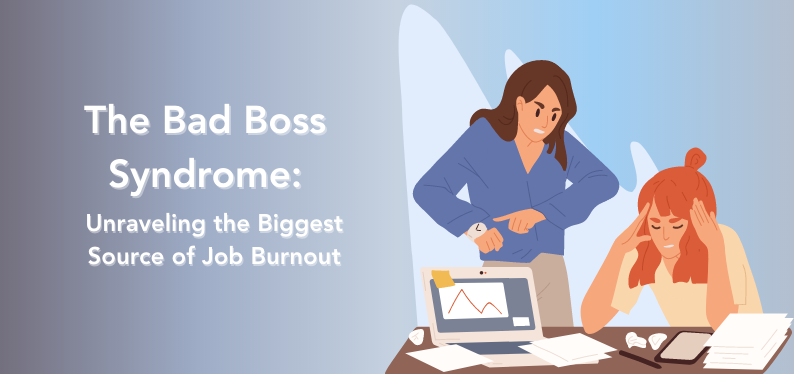What makes a job unbearable to the point of burnout? According to a comprehensive study by Gallup, one of the largest focused on burnout, the leading cause is not what you might expect. It is not an overwhelming workload, nor is it the constant ticking of the clock. Instead, the number one source of job burnout is “unfair treatment at work.” Followed by unmanageable workload, unclear communication from managers, lack of managerial support, and unreasonable time pressure.
What do these five leading causes have in common? They all trace back to a single, critical factor: your boss.
A toxic work environment, it seems, is defined by the person in charge. When this person is inconsiderate, uncommunicative, and unsupportive, the result is often a team of disgruntled and disheartened employees. A bad boss can make you feel ignored, disrespected, and unsupported, and miserable.
In fact, the impact of a bad boss is so significant that Gallup found it can predict a staggering 70% of the variance in team engagement. This means that understanding the boss’s attitude and behavior can provide a surprisingly accurate snapshot of a team’s overall morale and productivity.
So, how does a bad boss foster such a detrimental environment?
1. Unfair treatment at work:
This could range from favoritism and bias to harassment and discrimination. Such practices create a hostile work environment where employees feel undervalued and disrespected.
2. Unmanageable workload:
When a boss constantly piles up on tasks without considering an employee’s capacity, it leads to overwhelming stress and, eventually, burnout.
3. Unclear communication from managers:
Ambiguity in instructions, expectations, or feedback can leave employees feeling confused and directionless, thereby fostering frustration and disengagement.
4. Lack of manager support:
Without the necessary support from their manager, employees may feel isolated and ill-equipped to process their tasks effectively, leading to lower job satisfaction.
5. Unreasonable time pressure:
When bosses set unrealistic deadlines, it creates a high-stress environment that can quickly lead to burnout.
The consequences of a bad boss extend beyond individual dissatisfaction. An unhappy, disengaged team will inevitably lead to lower productivity, higher turnover rates, and a toxic work culture.
The takeaway is clear: the role of a manager extends far beyond delegation and supervision. Effective leadership involves fair treatment, clear communication, support, and reasonable expectations. It is about fostering an environment where employees feel valued, respected, and equipped to do their best work.


Recent Comments